Fit2Farm: How a better work-life balance benefits farm and family
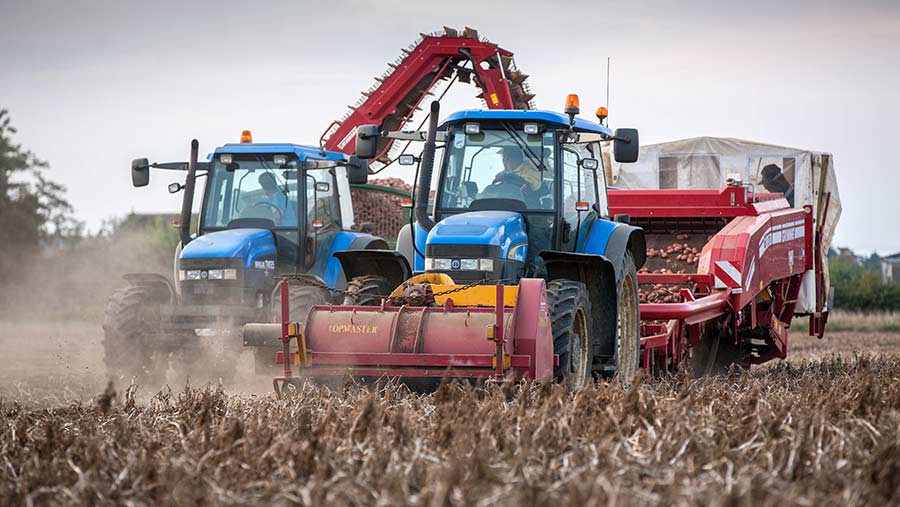 © Tim Scrivener
© Tim Scrivener Achieving a better work-life balance is top of the list for Britain’s farmers – many of whom are working long hours with little time off.
The average farmer works 65 hours per week – much longer than the national average of 37 hours, according to a survey carried out by Farmers Weekly. Many work much longer than that – and say it is hard to find time to get off the farm.
Published to mark the start of a Farmers Weekly campaign called Fit2Farm, the survey findings highlight the importance of healthy farmers to healthy farm businesses. The study was carried out in association with Bayer and Isuzu.
See also: Fit2Farm: Hard work and long hours take toll on farmers
Asked what they would like more information about when it came to improving their health and wellbeing, some 40% of farmers said they wanted to know more about ways of balancing their work, family and time off.
The pressure of running a successful 1,000-cow dairy herd is no different to the pressure of running a top FTSE-100 company, says business management expert Bonnie Clarke. But taking a different approach can help to free up time for other interests and family life, she adds.
New management style
Ms Clarke is client relationship director for Remarkable – a company which has worked with the Scottish Dairy Hub to help milk producers improve their work-life balance while increasing their competitiveness, technical efficiency, sustainability and growth.
Giving up some control – for example by delegating day-to-day decisions to farm staff – can help to create more space in the day, Ms Clarke says. Although it might sound daunting, doing so can also encourage improvements in productivity, she adds.
Many farmers would benefit from changing their management style, she argues. Rather than being the person who tells everyone what to do, they should encourage farm staff to think for themselves and take the initiative.
“Often a farmer will be running a multimillion-pound company or a significantly sized farm enterprise but they don’t sometimes see themselves as a business people,” Ms Clarke says. “But you still have to remember that you are running a business.”
Farmers should also take a more business-like approach to running the farm, she adds.
Tim May, of Kingsclere Estates in Hampshire, was so determined to have a summer holiday that he did just that – by writing it into his business plan. “Because I’ve made it my mission, it is happening,” he says. “I’ve had two weeks in August off the last two years.”
Pooling resources
Others have gone further still. A better work-life balance wasn’t the primary goal when Norfolk farmers Mark Fletcher and James Woodhouse decided to set up Pilgrim Farming – a joint venture to make their arable businesses more resilient by sharing machinery and labour. But it has been a major benefit.
Having pooled resources, Pilgrim Farming operates across 1,500ha of north Norfolk. It has helped both businesses reduce fixed costs while making better use of farm labour – and giving Mr Fletcher more time to spend with his young family in the evenings.
“It is difficult to say how many hours it has saved – but it has certainly freed up more time. We mainly did it for the business structure but it has made the evenings easier and if I need to get away for a school event I am more likely to go because I don’t feel I am leaving people in the lurch.”
But simpler approaches can also be beneficial.
Herefordshire livestock farmer Richard Thomas makes time to get away from the farm by checking stock, going out for the day and then checking again when arriving home. “Granted it’s not as good as a holiday, but I’d argue it’s better than nothing,” he says.
Case study: We never work Sundays – ever
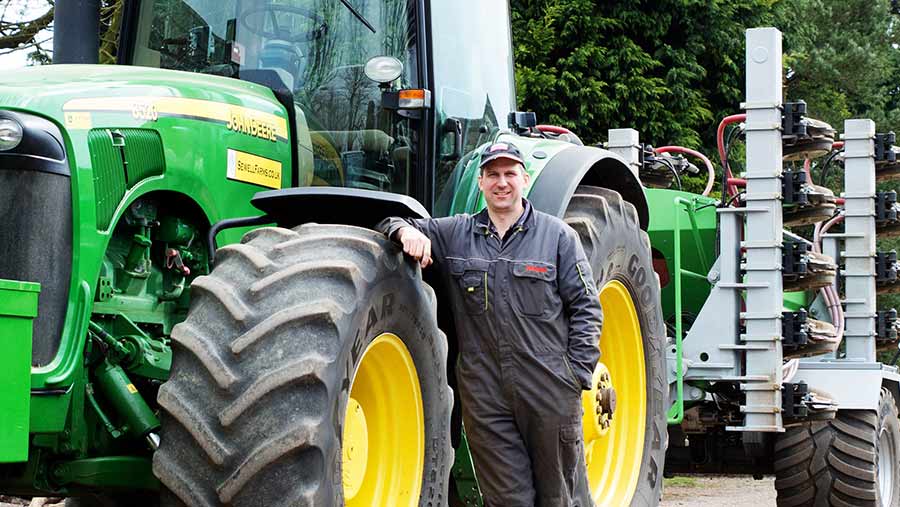
© Alexandra Joseph
Kent arable farmer and contractor Tom Sewell says his family has made a conscious decision to take a day off every week – no matter what needs doing on the farm.
“We never work Sundays – ever,” he says. “I’ve got a wife and four kids and they are more important than the job. We work to live, not live to work. We aim to buy the biggest gear we can afford and work machines for the least hours necessary.”
Farming 400ha, Mr Sewell acknowledges that taking time off is easier for arable farmers than livestock producers. But he says even with a dairy herd or other livestock he would still take the minimum one day each week to spend time with his family.
“It means we never work more than six days in a row and we are always fresh on a Monday morning. If it rains for six days and is sunny on a Sunday, we shrug our shoulders and take the day off or go to the beach – even during harvest.”
Buying big kit means the farm is over capacity when it comes to machinery, Mr Sewell admits. But this enables work to be done in a more timely fashion, he says. It also means the farm is well-placed to expand and take on new contracts when the opportunity arises.
Case study: Farm group shows it is good to talk

Belonging to a farm discussion group is good for business – as well as an opportunity to catch up with friends, says Suffolk farmer Mike Porter.
Founded more than 50 years ago, the Deben Farm Club now has more than 150 members. It has a full programme of winter meetings as well as farm visits within the UK and overseas, says Mr Porter. Previous speakers have included top farmers, Nuffield scholars and rural leaders.
“You don’t necessarily come home with an idea and do it the next day but you often meet new people or old friends – or somebody else who makes you look at something in a different way. The social side is often good too,” he says.
Mr Porter says talks at club meetings over recent years have encouraged him to adapt his approach to farming. He is using fewer cultivations, has adopted GPS where he can and is moving gradually towards a controlled traffic farming, as much as the farm allows.
But the social side is equally important, he adds. “Some people never leave the farm – it’s sometimes too easy to work all the time and hide yourself away. I enjoy being around the farm – whether its fishing or bird-watching. But getting off the farm is good too.”
Balanced approach is possible, says Fit2Farm ambassador
“Everyone needs to switch off now and again – even if it’s just going for a walk,” says Welsh rugby international and Fit2Farm ambassador Dan Lydiate.
The 30-year-old Ospreys flanker, whose family runs a sheep and beef farm near Llandrindod Wells, has teamed up with Farmers Weekly to highlight the importance of health and wellbeing among farmers and farm workers.
“You can’t do one thing 24 hours a day because you get into a rut,” he says. “The biggest problem with that is small problems can seem like they are mounting up. They might not even be problems but you need to take a step away or even just talk to someone to realise it.”
Like many farmers, Dan says he is his own harshest critic. “I could have made 25 or 30 tackles during a game. But if I’ve missed one, that will be the one I am thinking about. Sometimes it is good to have a distraction – and remember you’re not going to have the perfect game every time.”
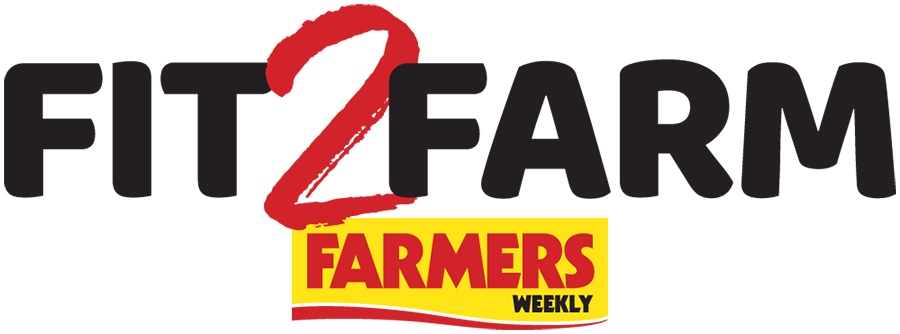 Farmers Weekly has launched a new campaign to help farmers discover how they can improve their own health, wellbeing and work-life balance.
Farmers Weekly has launched a new campaign to help farmers discover how they can improve their own health, wellbeing and work-life balance.
It’s all about making sure you are in top shape, physically and mentally to run your farm business.
We’ve been joined by business and charities to raise awareness for this campaign. Read about our sponsors below.
Read all of the articles in the Fit2Farm series
Fit2Farm: How farmers can improve their mobility to avoid injury
Fit2Farm: How a farmer’s wife helps others in tough times
Fit2Farm: Why farmers need to eat better and exercise more
Fit2farm: Wellbeing guru shares top health tips for farmers
Fit2Farm: How a better work-life balance benefits farm
Fit2Farm: Hard work and long hours take toll on farmers
Fit2Farm: FW campaign to improve farmers’ health
Video: Rugby star signs up to be Fit2Farm ambassador
Advice on fixing relationship problems for farming couples
Our sponsors
Bayer
 Your wellbeing is just as important to your farm’s future as looking after your land, crops and animals. Looking after yourself helps you be more productive and confidently face new challenges.
Your wellbeing is just as important to your farm’s future as looking after your land, crops and animals. Looking after yourself helps you be more productive and confidently face new challenges.
At Bayer, we have health and nutrition at our core, so we are delighted to support Fit2Farm.
Find out more at cropscience.bayer.co.uk/wellbeing
Isuzu

Isuzu are proud to support UK farmers of today and as the pick-up professionals we understand that having the right tools and equipment are vital elements to making the working day go that much easier.
That’s why with Isuzu, our pick-ups are strong, durable and built to go the distance, so you can focus the job in hand.
Find out more about the Isuzu D-Max range on our website
Our charity partners
Farming Community Network

The Farming Community Network (FCN) is a voluntary organisation and charity that supports farmers and families within the farming community through difficult times.
FCN’s volunteers provide free, confidential, pastoral and practical support to anyone who seeks help, regardless of whether the issue is personal or business-related.
Helpline: 03000 111999
E-Helpline: help@fcn.org.uk
Helpline is open every day of the year from 7am to 11pm
Website: www.fcn.org.uk
Farm Safety Foundation
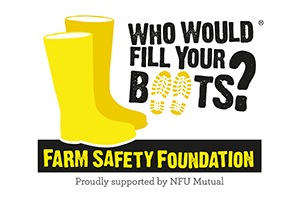
The Farm Safety Foundation is an award-winning charity raising awareness of farm safety among the next generation of farmers.
Through training and campaigns such as Farm Safety Week and Mind Your Head, the Foundation tackles the stigma around risk-taking and poor mental health, ensuring that that next generation of farmers is equipped with specific skills to live well and farm well.
Website: www.yellowwellies.org
Worshipful Company of Farmers
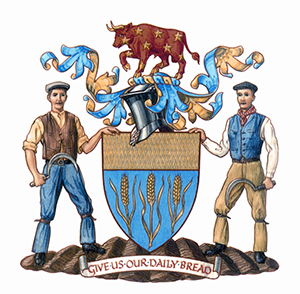
The complexity, risk and relentless uncertainty within agriculture today take a tremendous toll on all those who work in the industry; never before has resilience been so crucial.
Recognising this we are delighted to support this new initiative to promote good health and wellbeing. It’s a fresh approach and demonstrates that working together we are always stronger.
Website: farmerslivery.org.uk
